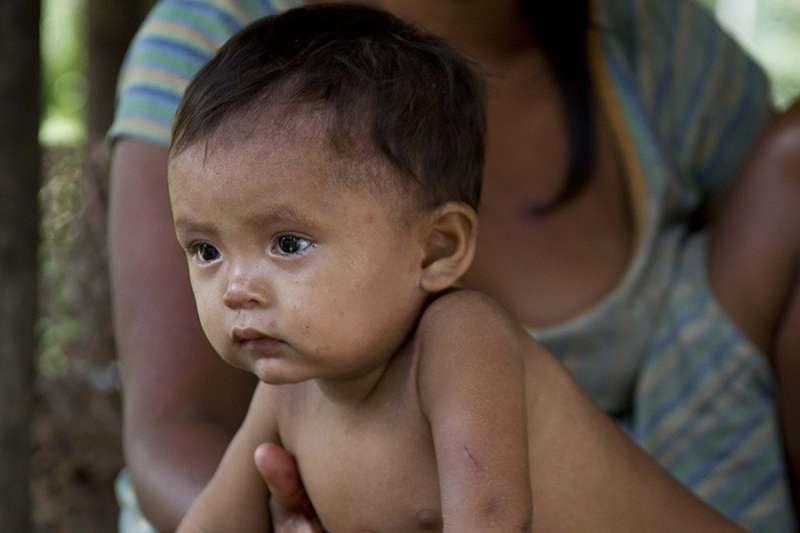As the humanitarian crisis in Venezuela deepens, U.S. Vice President Mike Pence announced that the United States will provide nearly $16 million in aid to Venezuelan refugees.
Pence made the announcement at the Summit of the Americas in Peru on April 13.
Due to hyperinflation and economic collapse, Venezuelans face severe food and medical shortages.
The average Venezuelan lost 24 pounds over the past year with 90 percent of the population living below the poverty line, according to researchers at the Center for Strategic and International Studies (CSIS).
Caritas Venezuela, a Catholic charitable organization, has warned that 280,000 children are at risk of dying from malnutrition. In response, Caritas is in the process of setting up a network of nutrition monitoring centers in over 50 parishes. Soup kitchens operate in more than 400 parishes in Venezuela, according to Caritas.
The economic crisis has led 1.2 million refugees to flee Venezuela in the past two years, according to CSIS.
Many refugees have fled to neighboring C√∫cuta, Colombia, where Catholic bishop Victor Manuel Ochoa oversees a ministry that serves 8,000 hot meals each day for the displaced.
Within Venezuela, “coping strategies such as eating only one meal a day and relying on a diet composed mainly of cassava root are common …” wrote Caritas’ Isabel Herrera in a recent blog post.
Many blame Venezuelan President Nicolás Maduro’s economic mismanagement for the crisis. Despite this, Maduro has repeatedly refused humanitarian aid from the international community.
A State Department representative called on the Venezuelan leader to accept food and medical aid for his country following Pence’s announcement in Lima.
The $16 million in funding from the State Department and U.S. Agency for International Development includes a contribution to the United Nations’ regional refugee response and humanitarian organizations working in the region.
According to the State Department, “This assistance will help provide the people of Venezuela safe drinking water, hygiene supplies, shelter, protection from violence and exploitation, and work and education opportunities, in coordination with other humanitarian organizations and government partners.”
The funds are in addition to the $2.5 million the U.S. promised for emergency food and health assistance last month.
U.S. President Donald Trump was originally supposed to travel to the Summit of the Americas in Lima, but ended up canceling his trip due to the U.S. response to the chemical weapons attack in Syria. Vice President Pence traveled to South America in his stead.
Maduro, the handpicked successor of Hugo Chavez, has continued Venezuela’s socialist economic policies without the added boost of high oil prices that benefitted his predecessor.
In 2017, the Venezuelan president took steps to consolidate his power across all branches of government and redrafted the constitution.
Maduro, whom U.S. Ambassador Nikki Haley has called “an abusive dictator,” faces a national election this May, but experts have voiced concern that it will not be a free or fair election.

